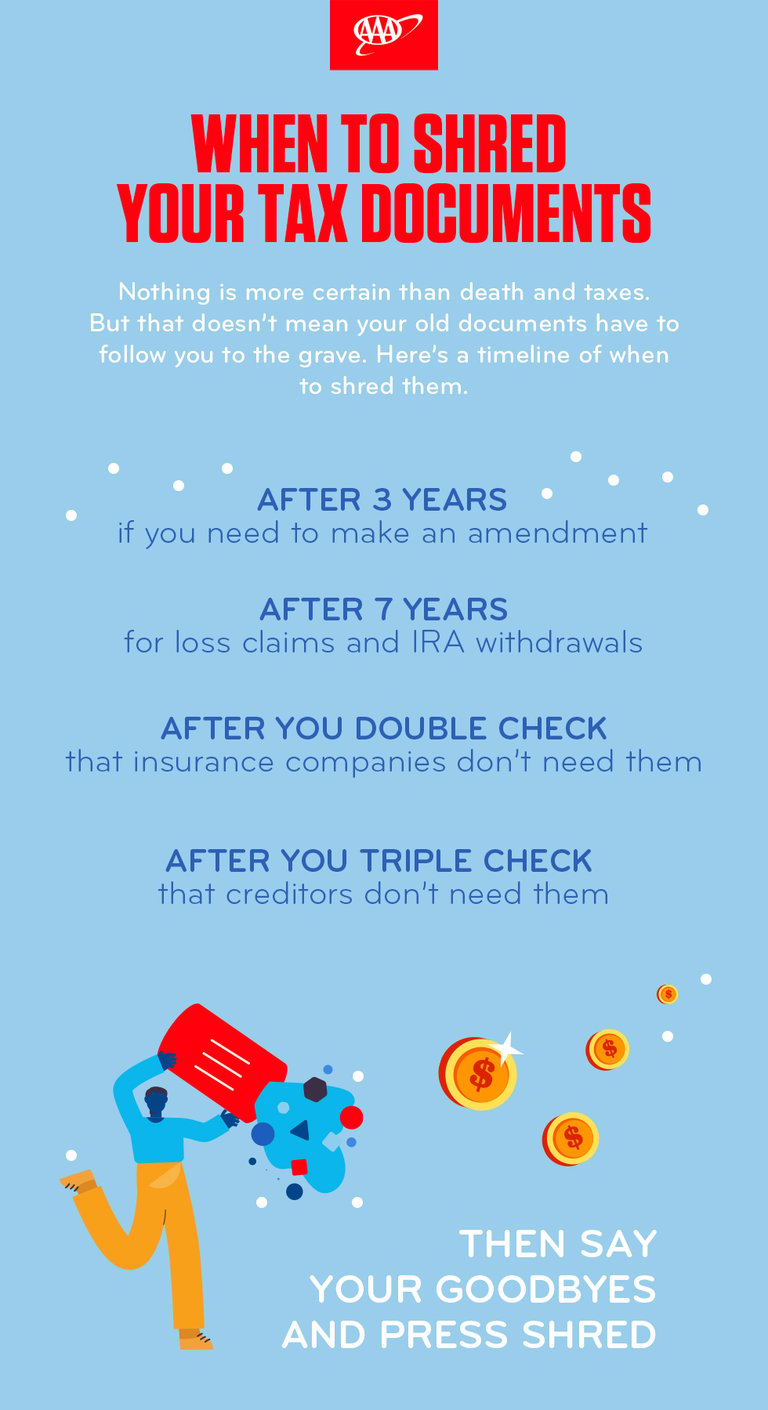How Long to Keep Tax Returns
5 recordkeeping tips for tax season, including which tax documents to keep and how to safely store them


It’s tax season, and as Americans dig through a mound of paperwork, it leaves many of us wondering how long we need to hold on to our documentation. To pinpoint what you should keep and what you can pitch, here’s a list of what you should keep on file and how long you should hold on to these documents.
What Tax Records to Hold On To
For starters, you should keep every tax return and supporting document. Some of these documents may include:
- W-2 from your employer
- 1099s
- Mileage logs
- Expense trackers
- Records that support itemized deductions
How Long to Keep Tax Records
The length of time you must keep your tax documents will depend on the document, action, or expenses of the record. Taxpayers have a period of limitation or a specific time frame during which they can amend their tax return to claim a credit or refund.
Generally, the period of limitations is three years from the date the return was filed. Therefore, you should keep your tax documents for at least three years.

Exceptions to the Three-Year Rule
Some circumstances may require you to keep your tax documents longer than three years. A different recommended time frame to keep certain files is seven years. This applies to documentation for retirement accounts like IRAs, starting from when the account is completely emptied, files about claims for a loss of worthless securities, or bad debt deductions.
Another example is if you own property. You should keep all records relating to that property until the period of limitations ends for the year in which you get rid of the property. All records will help you determine depreciation, amortization, or depletion deduction. It also helps you calculate any gains or losses when you go to sell the property.
Keep in mind, property isn’t just buildings or land; it can also be equipment, stocks, or other assets.
You should be aware that if you don’t claim 25% of your gross income on your return, the period of limitations increases to six years. And, if you don’t file a return at all or submit a fraudulent return, the IRS suggests keeping tax records indefinitely.

Make Sure No One Else Needs Them
Before pitching your old tax returns, verify you don’t need them for other purposes. For example, some creditors or insurance companies may require you to keep records for longer than three years. So make sure to verify how long you need to keep the records before you discard them. If you discover it’s okay to get rid of your old tax documents, be sure to shred them since they include sensitive information.
Where to Store Your Tax Documents
Now that you know you must keep your tax records for a few years, it’s important to keep them safe. The best way to store your tax records is in a fireproof safe. You can include other vital documents in this safe such as your marriage license, Social Security cards, insurance documents, mortgage information, and the deed to your home. Ensure one of your loved ones knows how to gain access to this documentation in case something were to happen to you.
If you prefer not to keep hard copies of your important documents, you can scan them into an encrypted hard drive or the cloud. This method may take up less space and make it more manageable to organize all of your important records. However, some records must be original copies. So, before you discard any document, make sure you don’t need a hard copy version first.
